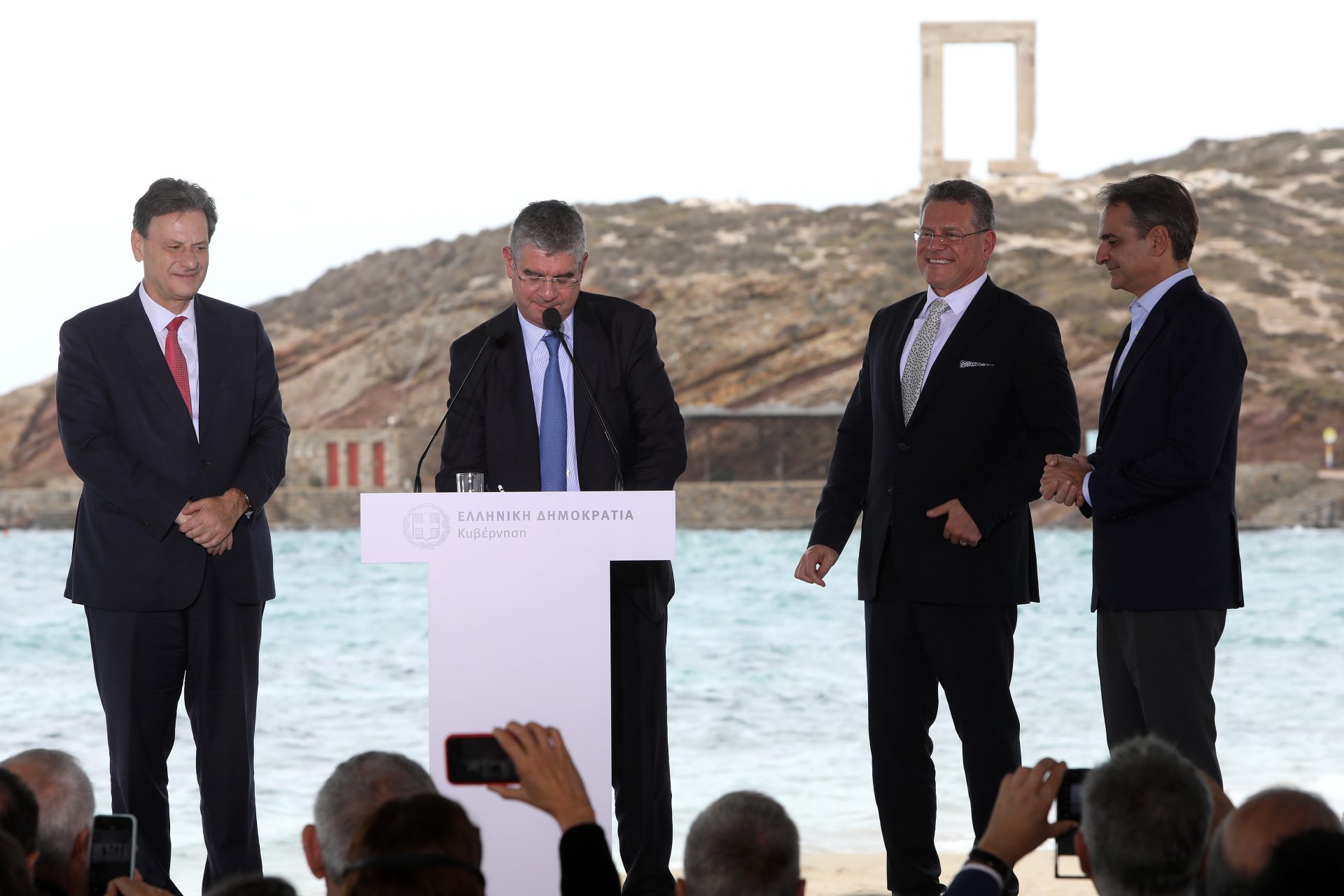
Investments exceeding 5 billion euros are set to be made in renewable energy sources, electricity interconnections, and water supply infrastructure across the islands, alongside reduced electricity bills for consumers due to the gradual easing of Universal Service Obligations. This initiative is part of the newly established Island Decarbonization Fund, an agreement for which was signed in Naxos with Prime Minister Kyriakos Mitsotakis in attendance.
The fund will initially provide 1.6 billion euros in capital, leveraging private investments to achieve a total of over 5 billion euros targeted at three key areas:
1. The interconnection of the islands in the North Aegean and Dodecanese regions, which will be executed by ADMIE, alongside smaller islands such as Kymi, Patmos, Kythnos, and Amorgos, managed by DEDDIE.
2. Development of renewable energy projects and energy storage solutions for households and businesses, including photovoltaics, batteries, pumped storage, offshore wind, and water reservoirs for energy production. Competitions for renewable energy installations combined with storage batteries for the six largest non-interconnected islands—Rhodes, Kos, Kalymnos, Samos, Chios, and Lesvos—are expected to be announced in 2025.
3. Infrastructure for electric vehicle charging, particularly focusing on providing electricity to large ships (cold ironing) arriving at island ports.
Kyriakos Mitsotakis: The fund we are presenting will facilitate our islands to achieve the green transition
During the event, Minister of Environment and Energy Thodoros Skylakakis highlighted the necessity for abundant and affordable energy to effectively combat the climate crisis. He stated that the new fund will enhance the competitiveness of the islands and contribute positively to the Greek economy. Skylakakis emphasized Greece’s leading role in the green transition, indicating that the Greek electricity system serves as a model for integrating renewable energy, and projected that successful project completion would position the Greek islands among the world’s few that boast a “green certification,” enhancing their appeal as tourist destinations. He assured that island residents would feel the positive impacts in their daily lives and utility expenses.
The Deputy Minister Alexandra Sdoukou described the initiative as a “mini Recovery Fund” created specifically for the Greek islands. She stated, “We are enhancing the overall quality of life for islanders and millions of visitors,” estimating that consumers could benefit from a reduction of Universal Service Obligations of around 2.2 billion euros for the Dodecanese and 1.6 billion for the North Aegean over a span of 25 years, with interconnections anticipated to be finalized by 2029.
EU Vice-President Maroš Šefčovič mentioned that Greece could potentially secure up to 2 billion euros from the sale of emission rights, a critical funding source for the Fund. He underscored the significance of these projects in addressing water scarcity on the islands, anticipating project proposals for inclusion in the near future.
Giannis Tsakiris, Vice-President of the European Investment Bank, noted that this agreement reflects both Europe’s and Greece’s commitment to a green transition and signifies a landmark collaboration between Greece and the EIB, which has invested around 50 billion euros in over 400 projects nationwide.
The event also featured remarks from the Governor of the South Aegean Region Giorgos Hatzimarkos, who spoke on the prime minister’s plan and political resolve to implement a comprehensive network of infrastructure projects across the islands. Mayor of Naxos, Dimitris Lianos, highlighted the importance of achieving a balance between economic development and environmental conservation. (21/11/2024)
K. Voutsadakis













Leave a Reply